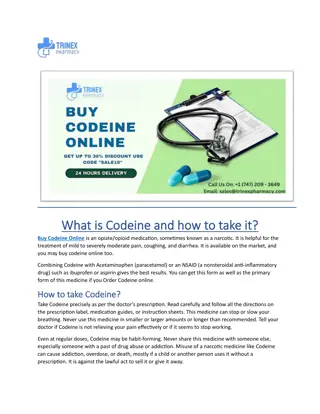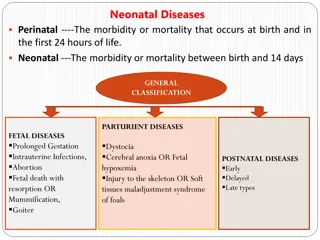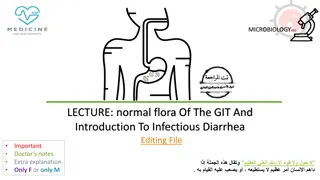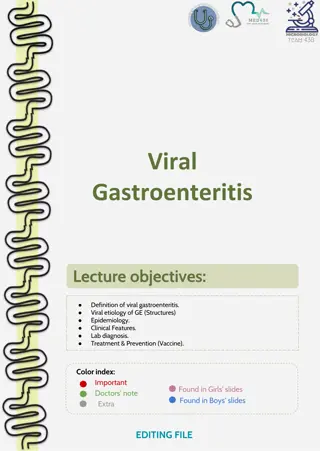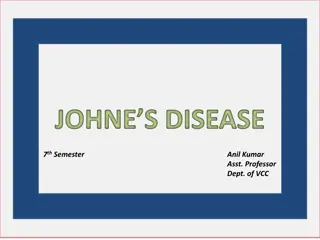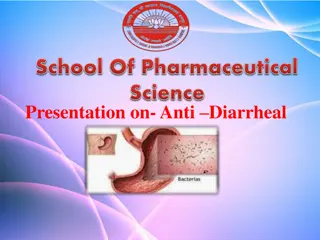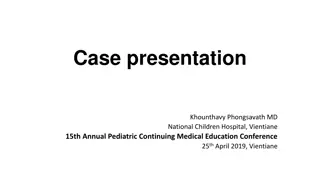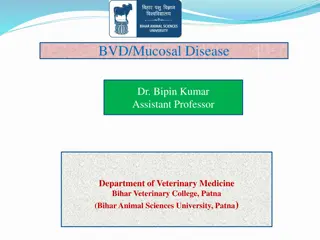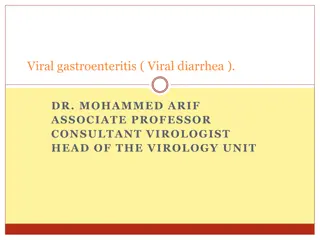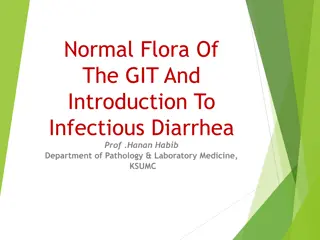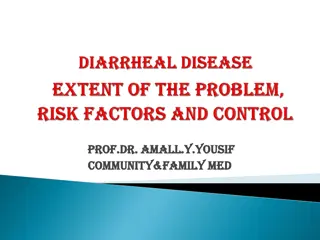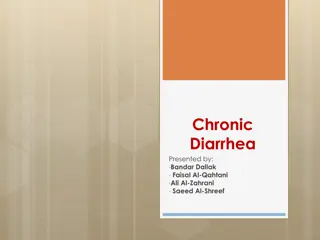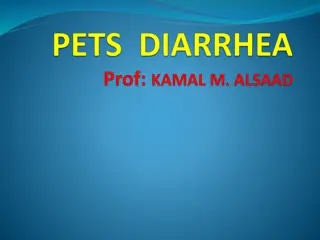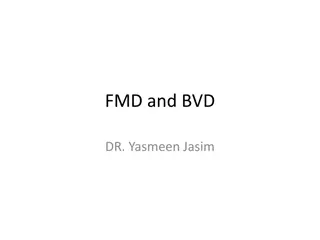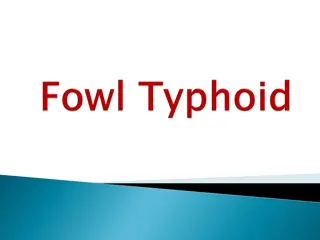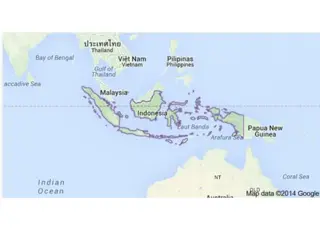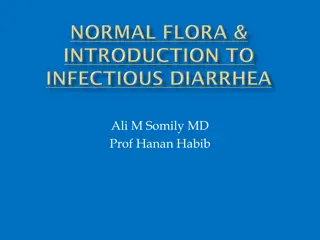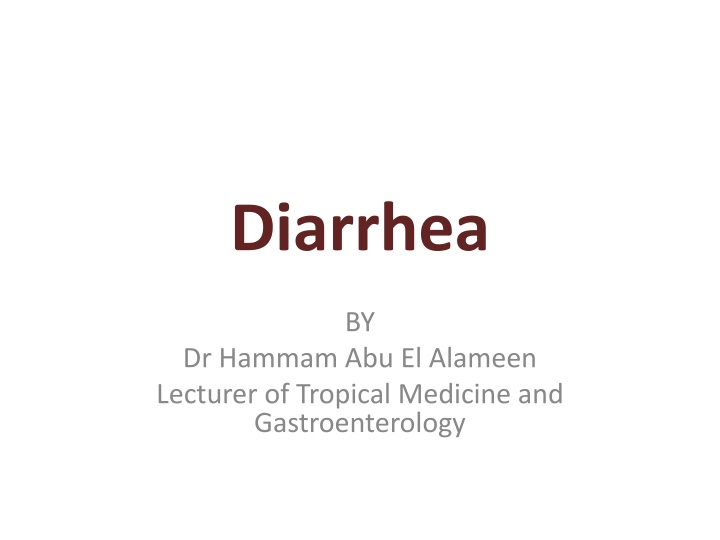
Diarrhea
Learn about the different types of diarrhea - acute and chronic, their causes such as viral, bacterial, and parasitic infections, and how they are treated. Explore the distinctions between non-inflammatory and inflammatory diarrhea and discover the various underlying conditions that may lead to chronic diarrhea, such as malabsorptive disorders and secretory diarrhea. Understanding the characteristics and treatment options for diarrhea is essential for managing this common gastrointestinal issue effectively.
Download Presentation

Please find below an Image/Link to download the presentation.
The content on the website is provided AS IS for your information and personal use only. It may not be sold, licensed, or shared on other websites without obtaining consent from the author. If you encounter any issues during the download, it is possible that the publisher has removed the file from their server.
You are allowed to download the files provided on this website for personal or commercial use, subject to the condition that they are used lawfully. All files are the property of their respective owners.
The content on the website is provided AS IS for your information and personal use only. It may not be sold, licensed, or shared on other websites without obtaining consent from the author.
E N D
Presentation Transcript
Diarrhea BY Dr Hammam Abu El Alameen Lecturer of Tropical Medicine and Gastroenterology
Diarrhea Definition: It is an increase in frequency and liquidity of stools. Types: Acute diarrhea. Chronic diarrhea.
Acute diarrhea it is with acute onset and present for less than 3weeks and is sub classified into: Non-inflammatory Diarrhea: Watery, non-bloody associated cramps, bloating, vomiting may be voluminous and result in dehydration, no fever or evidence of leucocytes. diarrhea with peri-umbilical nausea, or blood or fecal
Acute diarrhea It may be due to: Toxin-producing [enterotoxigenic Escherichia coli (ETEC), Staphylococcus Bacillus cereus, perfringens, V.cholera]. Viral infections: Rota virus and Norwalk virus. Protozoal infections: Giardia and cryptosporidium. bacteria aureus, Clostridium
Acute diarrhea Inflammatory Diarrhea: often associated symptoms including diarrhea, Lt lower quadrant cramps, fecal leucocytes. It may be due to: Invasive organism salmonellosis, Campylobacter, Yersinia, amebiasis) Bacterial toxin Enterohemorrhagic E coli 0157:H7). Intestinal ischemia, bowel diseases, and radiation colitis. with fever, systemic bloody (shigellosis, (C. difficile, inflammatory
Chronic Diarrhea It is diarrhea lasting more than 3weeks, It is sub- classified into: Osmotic diarrhea: decrease of stool volume with fasting, and increase of osmotic gap. May be due to: lactose intolerance. Medications lactulose, magnesium laxatives, or sodium sulfate laxatives). as (sorbitol,
Chronic Diarrhea Secretory diarrhea: it is large in volume with little change with fasting, and normal stool osmotic gap. May be due to: Hormonal secretion carcinoid syndrome, Ellison syndrome, vipoma. Bile salt malabsorption as in ilial resection, Crohn s disease. Laxatives abuse. as in Zollinger-
Chronic Diarrhea Malabsorptive disorders: characterized by weight loss, anemia, hypoalbuminemia, fecal fat greater than 7-10 g/24h stool collection. May be due to: Intestinal mucosal diseases: celiac sprue, whipple disease, gastroentritis, small bowel resection. Pancreatic diseases: chronic pancreatitis, pancreatic carcinoma. Small bowel bacterial overgrowth. eosinophelic
Chronic Diarrhea Inflammatory conditions: Characterized by abdominal pain, fever, weight loss, and hematochezia. Diarrhea is present in the majority of patients with inflammatory bowel disease (eg, ulcerative colitis, Crohn's disease, microscopic colitis, radiation entritis). Motility disorders: Abnormal intestinal motility secondary to systemic disorders (DM, scleroderma, hyperthyroidism) (vagotomy or gastrectomy) or IBS. or post-surgery
Investigations Blood tests: CBC, ESR, CRP, IGs, albumin, electrolytes, Stool examination for ova and parasites. Imaging Studies. Thyroid function tests. Fecal leukocytes and stool lactoferrin. Stool osmolarity and quantitative fecal fat. Stool and blood culture. Clostridium difficile toxin. Endoscopy and Biopsy.
Treatment Treatment of Dehydration. Ant diarrheal Drugs. Antibiotic specific) and anti-parasitic drugs. Management of the cause. Therapy (empiric,
Dysentery It is passage of blood and mucus with stools. it is caused by: Infectious causes: Shigelloses (bacillary dysentery). Entameaba histolytica. Schistosomiasis. Malignant malaria. Balantidium coli. Non-infectious causes: e.g. Ulcerative colitis
Tenesmus Abnormal frequent desire to defecate, with sensation that is evacuation is incomplete. It indicate that lesion in the rectum as amebic dysentery, cancer rectum.
THANK YOU THANK YOU


